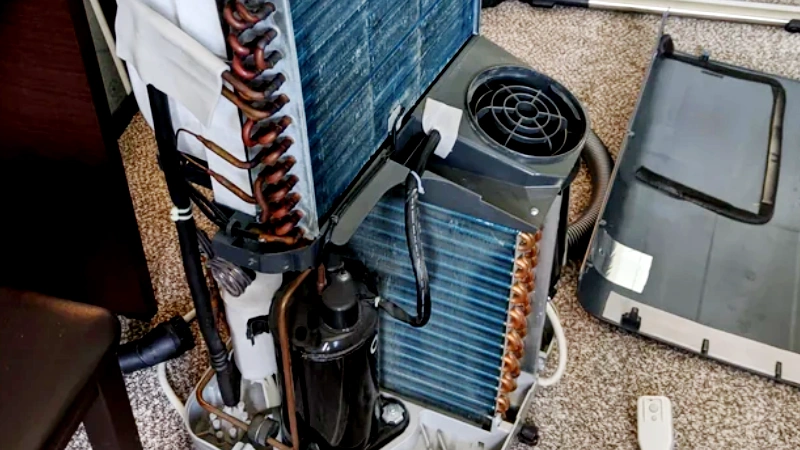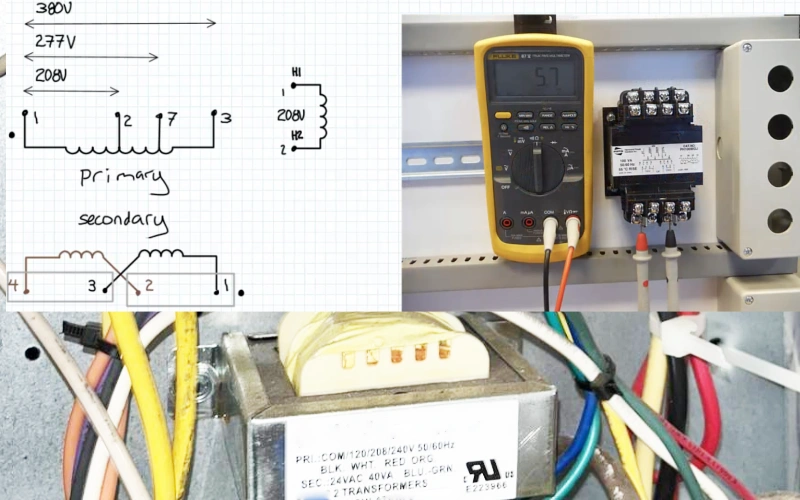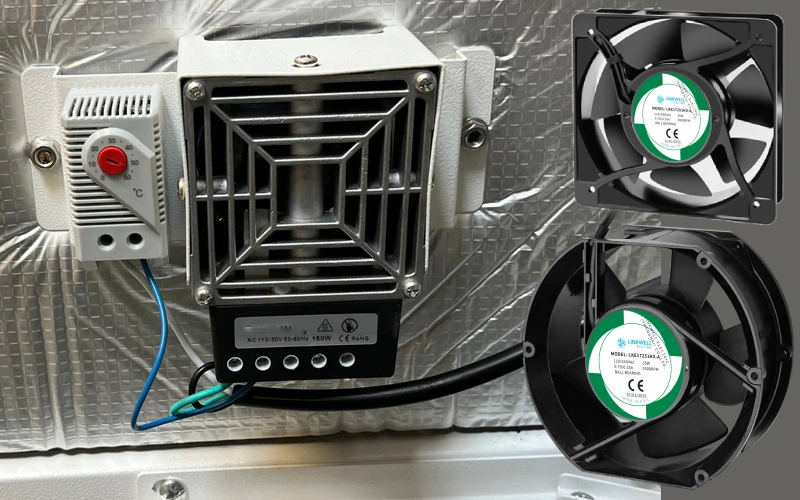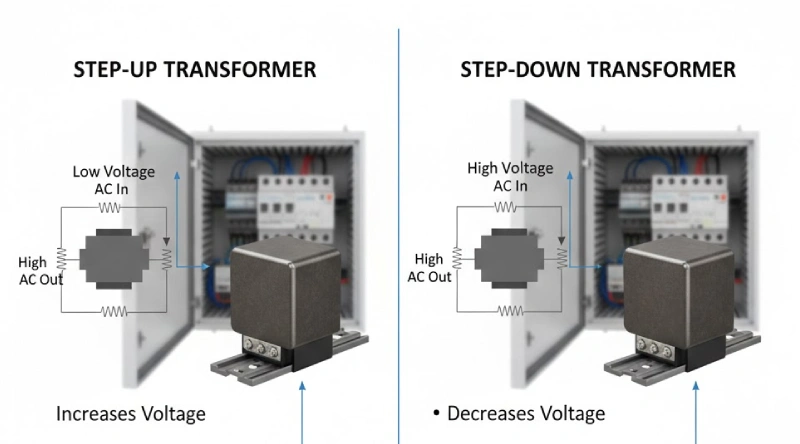If you notice Ac Fan Overheating, turn off the unit right away. You can fix many issues with simple steps and basic tools. Linkwell offers trusted cooling solutions for your home or business. Before you start, check this table to see how DIY and professional repairs compare:
| Approach | Immediate Costs | Long-term Savings | Risks |
|---|---|---|---|
| DIY Maintenance | Lower | Potentially higher | Improper repairs, warranty voiding |
| Professional Service | Higher | Greater savings | Prevents costly future repairs |
Always know your limits. If you feel unsure or spot electrical damage, call a technician.
Key Takeaways
- Always turn off your AC unit before troubleshooting. This keeps you safe and protects your equipment.
- Regularly clean your AC fan and filters to prevent overheating. Dust and debris can block airflow and strain the system.
- If you notice excessive vibration or strange noises, check for loose parts or call a technician. Early detection can prevent costly repairs.
Immediate Actions

Power Off Safely
Before you do anything else, make sure you power off your AC unit. This step keeps you safe and protects your equipment. Here’s how you can do it:
- Find the power source for your AC. Look for a shut-off box near the unit or go to your home’s circuit breaker.
- Flip the switch in the shut-off box or turn off the breaker that controls your AC.
- Double-check that the unit is off. Try turning it on at the thermostat. If nothing happens, you’re good to go.
- Wait a few minutes. Let the fan and motor cool down before you touch anything.
Tip: Always use insulated gloves if you need to handle any parts. Safety comes first!
Quick Visual Check
Now that your AC is off and safe to touch, take a close look at the fan and surrounding area. You don’t need any tools for this step. Just use your eyes and a flashlight if needed.
- Look for dust, dirt, or debris on the fan blades and vents.
- Check if the fan blades look bent, cracked, or damaged.
- Notice any burnt smells or signs of melted plastic.
- See if there are any loose wires or connections.
- Make sure nothing is blocking the airflow around the fan.
If you spot anything unusual, make a note. These details will help you or a technician fix the problem faster.
AC Fan Overheating Causes
When you run into ac fan overheating, you might wonder what’s really going on. Let’s break down the most common problems that lead to this issue and see how you can prevent them.
Dust and Debris
Dust and debris build up fast. Dirty air filters and clogged vents force your fan to work harder. This extra strain can cause ac fan overheating. You might notice your system running longer or making strange noises. Over time, clogged filters can even burn out the blower motor. Regular cleaning helps, but using a Linkwell Fan Filter Unit makes it easier to keep dust out and airflow steady.
Damaged Blades
Bent or broken fan blades throw your system off balance. Damaged blades can’t move air efficiently, so heat gets trapped inside. This leads to ac fan overheating and can even damage other parts. Always check for cracks or bends during your quick visual check.
Blocked Airflow
Blocked airflow is a big reason for ac fan overheating. When vents or coils get blocked, your system can’t release heat. This makes the fan and motor work overtime. Sometimes, frozen evaporator coils show up because of blocked vents. Linkwell Cabinet Air Conditioners help by keeping airflow smooth and temperatures stable.
Electrical Issues
Faulty wiring or loose connections can cause ac fan overheating. Electrical problems might show up as burnt smells or melted plastic. If you spot these signs, turn off your unit and call a technician right away.
Motor or Capacitor Problems
Old or worn-out motors and capacitors struggle to keep up. When these parts fail, your fan can overheat quickly. Sometimes, the wrong size motor gets installed, which also leads to overheating. Regular maintenance and the right cooling products from Linkwell can help your system last longer.
Note: Effective cooling and clean filters are key. Studies show that most equipment failures come from poor cooling. Linkwell’s solutions keep your system running safely and efficiently.
Cooling Fans Troubleshooting
When your AC fan overheats, you want a clear plan. Let’s walk through cooling fans troubleshooting step by step. You’ll start with simple cleaning and move on to technical checks. You’ll also see how Linkwell products make the process easier and safer.
Clean Filters and Blades
Dust and dirt are the enemy of any cooling system. You need to clean the filters and fan blades often to keep things running smoothly. Here’s how you can do it:
- Use a soft brush with gentle bristles to sweep dust off the fan blades.
- Attach a brush to your vacuum cleaner to collect loose debris.
- Try compressed air to blow away stubborn dirt.
- If the blades look really dirty, detach them and wipe with a damp cloth or spray with a hose.
- Skip harsh chemicals. They can damage your AC unit and filter.
Regular cleaning helps prevent overheating and keeps your system efficient. If you use a Linkwell Fan Filter Unit, swapping out filters is quick and simple. The unit’s design lets you replace filters without tools, so you spend less time on maintenance.
Tip: Clean dust filters and fan blades every month if your area is dusty. If you notice odd noises, check the bearings and motor for wear.
Inspect Linkwell Fan Filter Unit
Your Linkwell Fan Filter Unit does more than just filter air. It protects your AC from dust and moisture, which means fewer breakdowns. Here’s what you should check:
- Look for signs of clogging or dirt buildup on the filter.
- Make sure the filter fits snugly in the housing.
- Check the alignment of the fan and see if the blades spin freely.
- Check the fitment of the cooling fan to ensure it’s secure and not vibrating.
- Replace the filter every 1–3 months in dusty areas, or every 4–6 months in cleaner spaces.
Linkwell units come with filter reminders and smart alerts. These features warn you when it’s time for maintenance, so you never miss a cleaning. You can also monitor system status and get instant warnings if the temperature gets too high.
| Feature | How It Helps You Troubleshoot |
|---|---|
| Precise temperature management | Keeps conditions stable, reducing issues. |
| Easy monitoring | Lets you check system status quickly. |
| Smart alerts | Warns you about problems right away. |
| Filter reminders | Reminds you to do maintenance on time. |
Check Electrical Connections
Loose or damaged wires can cause overheating fast. Always turn off the power at the circuit breaker before you check anything electrical. Here’s what you should do:
- Look for loose, corroded, or burned wires around the fan motor and capacitor.
- Tighten any loose connections.
- Clean corrosion with a wire brush.
- Check connectors and terminals for wear or fraying.
- Use a multimeter to test for continuity.
- If you see melted insulation or burn marks, call a technician.
Note: Never skip safety. Power off the unit before you touch any wires.
Test Motor and Capacitor
If cleaning and checking wires doesn’t fix the problem, you need to check the motor and capacitor. These parts help the fan start and run smoothly. Here’s a simple way to test them:
- Check the power. Make sure the circuit breaker hasn’t tripped and the transformer gives proper voltage.
- Check the windings. Measure the resistance of the motor windings to spot shorts or opens.
- Inspect the capacitor. Use a tester to see if the capacitance is within 10% of the rated value.
- Check the motor for odd noises or overheating. If you hear grinding or see smoke, the motor may need replacement.
- Check the bearings for wear. Worn bearings can make the fan run hot and noisy.
Linkwell inverter cooling fans and cabinet air conditioners help keep motors and capacitors cool. Their smart controls track performance and send alerts if something goes wrong.
Verify Airflow
You need to check the airflow to make sure your AC fan works right. Airflow is measured in cubic feet per minute (CFM). For most systems, you want between 350 and 400 CFM per ton of air conditioning. Here’s how you can check the airflow:
- Use an airflow meter to measure CFM at the vents.
- If the reading is low, look for clogged filters or blocked ductwork.
- High airflow can mean the fan is too strong, which may cause noise or stress on parts.
- Check the fan blades for damage or obstruction.
- Check the bearings and motor for smooth operation.
- If you use a Linkwell Cabinet Air Conditioner, you can track airflow and temperature in real time.
Callout: If you hear strange noises or your fan runs nonstop, it’s time to check the motor and bearings. Regular maintenance helps you catch problems early.
Cooling fans troubleshooting doesn’t have to be hard. With Linkwell products, you get smart alerts, easy filter changes, and real-time tracking. You can keep your AC system safe and efficient with just a few simple steps.
Safety and Professional Help
Warning Signs
You want to catch AC fan problems early. Some warning signs mean you should stop and check things right away. If you notice excessive vibration coming from your AC unit, that’s a big clue something’s wrong. Here are other signs you shouldn’t ignore:
- Warm air blowing from the vents instead of cool air.
- No airflow at all, even when the system is running.
- Odd noises like grinding, squealing, or rattling from the fan.
- Fan not spinning when the unit is on.
- Breaker keeps tripping after you reset it.
- Excessive vibration that shakes the cabinet or nearby surfaces.
If you spot excessive vibration or hear strange sounds, turn off the power and inspect the fan blades and motor. Sometimes, dirt or debris causes the problem. Other times, damaged blades or loose parts lead to excessive vibration and overheating.
When to Call a Technician
You can fix simple issues, but some problems need a professional. If you see excessive vibration after cleaning and tightening parts, don’t risk it. Call a certified HVAC technician if:
- The outdoor fan motor has failed and needs replacement.
- You can’t diagnose capacitor problems or need special tools.
- Electrical issues go beyond loose wires or simple fixes.
- You suspect refrigerant circuit problems.
- Components are hard to reach or require special equipment.
- Backdrafting concerns appear, like fumes or odd smells.
- You feel unsure about your DIY skills or worry about making costly mistakes.
Safety comes first. Always turn off the power before troubleshooting. Never touch the capacitor unless you know what you’re doing. Use a stick to spin the fan blades instead of your hand to avoid injury.
If you notice excessive vibration that won’t go away, or if the breaker keeps tripping, it’s time to get help. Professional technicians have the right tools and training to fix the problem safely.
Preventive Maintenance

Regular Cleaning
Keeping your AC fan clean is one of the easiest ways to avoid overheating. When you set up a routine, you stop dust and debris from blocking airflow. Here’s what you can do:
- Wipe down fan blades and vents every month.
- Swap out or clean filters regularly, especially if you live in a dusty area.
- Use a vacuum or soft brush to clear away dirt from the fan housing.
- Make sure nothing blocks the vents or airflow around your unit.
Tip: Lubricate moving parts if your fan model allows it. This helps reduce wear and keeps things running smoothly.
A Linkwell Fan Filter Unit makes this job even easier. You can change filters quickly, and the design keeps dust out, so your fan works better for longer.
Scheduled Inspections
You should check your AC system at least once a year. If your unit is older, twice a year is even better. During these inspections, look for:
- Loose or worn electrical connections.
- Signs of vibration or noise.
- Air leaks or blocked vents.
- Proper thermostat operation.
A quick monthly check with a vinegar solution on the coils can help prevent buildup. Annual coil cleaning keeps everything efficient. If you use Linkwell Cabinet Air Conditioners or Electrical Enclosure Fans, you’ll notice fewer problems because these products keep temperatures steady and reduce stress on your system.
Linkwell Product Upgrades
Upgrading to the latest Linkwell cooling solutions can boost your system’s reliability. Here’s how you benefit:
| Upgrade Best Practice | Why It Matters |
|---|---|
| Regular maintenance | Prevents breakdowns and keeps cooling efficient |
| Proper cabinet sealing | Blocks dust and moisture, protects electronics |
| Smart cooling systems | Saves energy and improves temperature control |
Linkwell’s advanced fans and air conditioners use smart controls and high-quality filters. These upgrades help you avoid costly repairs and keep your equipment running longer. Every degree you keep your system cooler means your electronics last much longer—sometimes even twice as long!
You keep your AC running strong when you act fast and clean regularly. Linkwell products make maintenance simple and reliable. Always turn off power before checking anything. If things get tricky, call a pro. Check out these stats—planned maintenance saves energy and cuts costs!
| Source | Key Findings |
|---|---|
| Department of Energy | 5-20% annual energy savings; 50% less maintenance cost |
| Es-Sakali et al. (2022) | 70-75% fewer breakdowns; 35-45% shorter downtime |
FAQ
What should I do first if my AC fan overheats?
Turn off the power right away. Let the fan cool down. Check for dust, debris, or damage before you try anything else.
How often should I clean or replace my AC fan filter?
You should clean or swap filters every 1–3 months in dusty areas. In cleaner spaces, every 4–6 months works well.
Can I use Linkwell products for home AC systems?
Yes! Linkwell Fan Filter Units and Cabinet Air Conditioners work for homes, offices, and industrial setups. You get easy installation and reliable cooling.




